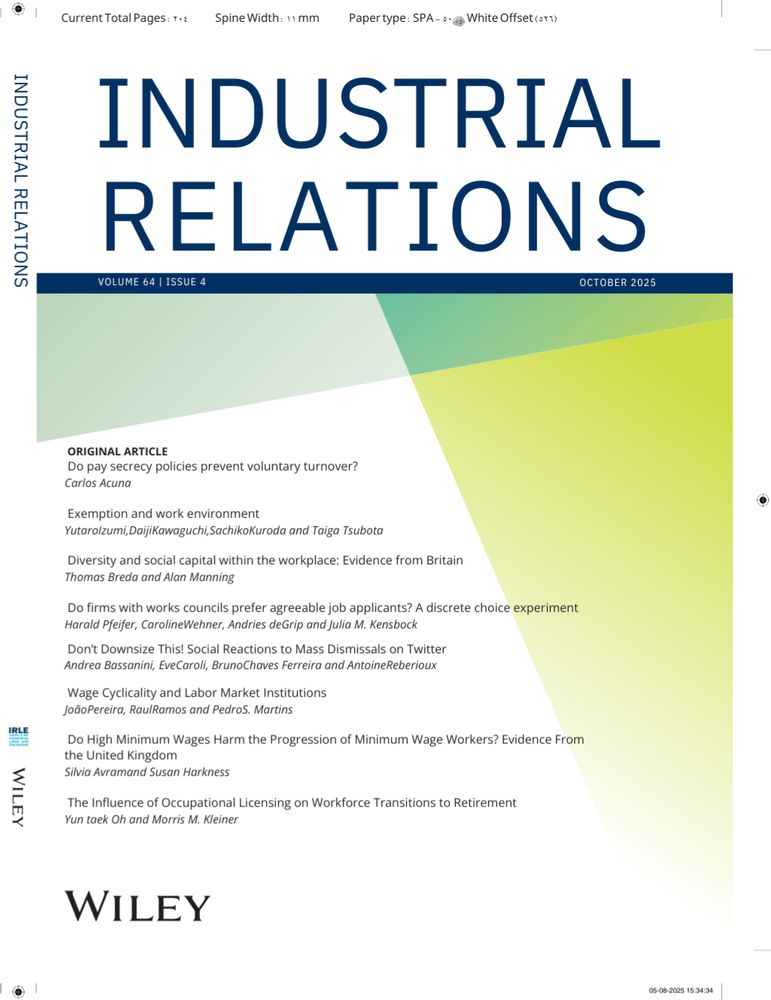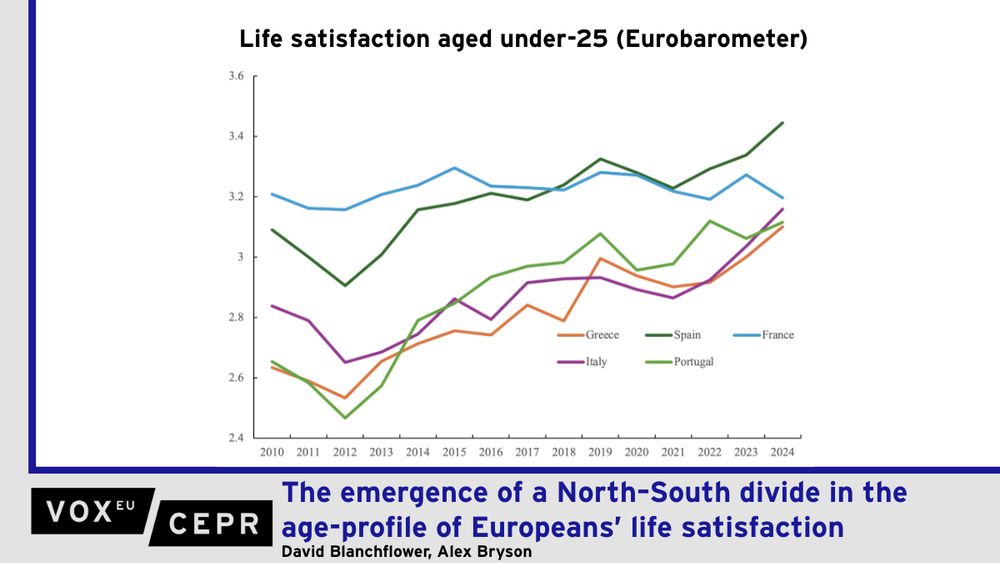Alex Bryson
@alexbryson.bsky.social
150 followers
45 following
52 posts
Professor of Quantitative Social Science, UCL Social Research Institute https://profiles.ucl.ac.uk/54820-alex-bryson
Posts
Media
Videos
Starter Packs
Reposted by Alex Bryson
Patrick Nüß
@patricknuess.bsky.social
· Sep 4
Reposted by Alex Bryson
Alex Bryson
@alexbryson.bsky.social
· Aug 27

The declining mental health of the young and the global disappearance of the unhappiness hump shape in age
Across many studies subjective well-being has followed a U-shape in age, declining until people reach middle-age, only to rebound subsequently. Ill-being has followed a mirror-imaged hump-shape. Using...
journals.plos.org
Alex Bryson
@alexbryson.bsky.social
· Aug 20

The consequences of abuse, neglect and cyber-bullying on the wellbeing of the young
We map changes in the mental health of young people in the United States. Then we run multivariate analyses to capture the independent correlation between young people’s mental health and difficulties...
doi.org
Reposted by Alex Bryson
Alex Bryson
@alexbryson.bsky.social
· Aug 12

Rising Young Worker Despair in the United States
Founded in 1920, the NBER is a private, non-profit, non-partisan organization dedicated to conducting economic research and to disseminating research findings among academics, public policy makers, an...
www.nber.org
Reposted by Alex Bryson
Alex Bryson
@alexbryson.bsky.social
· Jul 28

Rising Young Worker Despair in the United States
Founded in 1920, the NBER is a private, non-profit, non-partisan organization dedicated to conducting economic research and to disseminating research findings among academics, public policy makers, an...
nber.org
Reposted by Alex Bryson
Alex Bryson
@alexbryson.bsky.social
· Jul 22
The emergence of a North–South divide in the age-profile of Europeans’ life satisfaction
The traditional U-shape in wellbeing, with people’s life satisfaction lowest in their late 40s or early 50s, appeared to have been replaced around 2013-15 by wellbeing rising with age, driven by a collapse in the wellbeing of the young. This column uses survey data from 21 European countries to show while that the U-shape has indeed disappeared, by 2020–2024 it was replaced by life satisfaction rising with age in Northern European countries but falling with age in Southern Europe where the young have been getting more satisfied with life, possibly due to improvements in the youth labour market.
cepr.org









